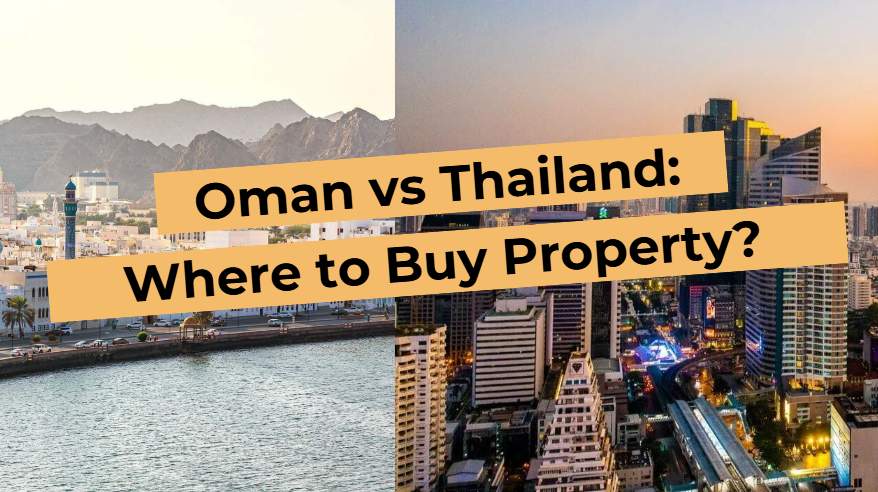
How to legalize documents for UAE


In today's world, where borders are becoming more and more transparent, there is an increasing need to use documents outside the country of issue. In this context, the process of consular legalization is becoming critical for citizens and companies seeking to expand their presence abroad. In this article we will discuss what consular legalization is, what documents are subject to this procedure, what are the terms and costs of legalization, and the specifics of the process in different countries.
What is consular legalization of documents?
Consular legalization is a procedure for authenticating documents for their use abroad. It is necessary so that the state in which the documents are to be used can be sure of their authenticity and legal validity. Without legalization, documents issued in one country will not be recognized as official in another.
In the UAE, consular legalization of documents is carried out at the Consular Section of the Ministry of Foreign Affairs and International Cooperation. The UAE legalization process includes certification of documents at the level of the Ministry of Foreign Affairs of the country of origin, then legalization at the UAE embassy or consulate in that country, and finally certification at the UAE Ministry of Foreign Affairs and International Cooperation.

It is important to note that some documents may require translation into Arabic before legalization, and the procedure and cost of legalization may vary depending on the type of document and the country of origin.
It is also worth considering that the UAE is a member of the Hague Convention, which simplifies the legalization of documents between member countries by issuing an "apostille" - a special stamp or sticker. This means that for some documents issued in member countries of the Hague Convention, an apostille may be sufficient rather than full consular legalization.
Consular legalization process
The consular legalization procedure consists of several main stages. First, the documents must be certified in the territory of the country where they were issued. Then, at the consulate of the country where the documents are to be used, their authenticity is verified and a consular stamp is placed. This process can take from a few days to a few weeks, depending on the particular country and the type of document.
Once the documents have been certified in the country of origin, you must submit them to the consulate or embassy of the country where you plan to use the documents. Depending on the country, this may involve submitting an application, paying a consular fee and providing additional documents such as translations or copies.
It is important to note that some countries may require documents to be translated into the official language of the country before legalization. In this case, the translation should be done by a professional translator and notarized.
Once documents have undergone consular legalization, they are recognized as official and can be used in the country where they are to be used. However, in some cases, additional steps may be required, such as registering the documents with local authorities.
It is important to remember that the consular legalization process can be complex and time-consuming, and require a significant amount of time and effort. Therefore, it is recommended that you start the process early and seek professional help if you have any doubts or questions.
What documents are subject to legalization?
In principle, any document that is to be used abroad may require legalization. This includes educational documents (diplomas, certificates), commercial documents (company registration certificates, founding documents), medical documents (certificates, medical certificates), and personal documents (birth, marriage, divorce, etc.). In the UAE, as in most countries, special attention is paid to legalization of the following documents:
- Educational documents: this includes diplomas, certificates, educational certificates, academic records, etc. These documents are usually required for admission to educational institutions or for employment. It is important to remember that these documents must be originals, not copies, and they must be certified by the issuing educational institution.
- Birth and death certificates: these documents may be required for inheritance, pension or insurance benefits, and marriage. In case of death in the UAE, the death certificate must be issued by the UAE Ministry of Health.
- Marriage and divorce certificates: these documents may be required for visa applications for a spouse, as well as for divorce or family reunification. If the marriage or divorce was registered abroad, these documents must be legalized in the country where they were issued before they can be used in the UAE.

- Criminal record certificates: may be required when applying for a work visa, investor visa or citizenship application. This is a document confirming that a person has no criminal record. In most cases, this document must be issued by the police or judicial authorities of the country of origin.
- Medical documents: such as medical certificates, certificates, immunization certificates, etc., which may be required for visa applications, employment or enrollment in educational institutions. They must be issued by an accredited medical institution.
- Commercial documents: include company incorporation documents, registration certificates, contracts, invoices, etc. These documents may be required to run a business, open a bank account or for legal transactions. Commercial documents also require legalization with the Chamber of Commerce and Industry of the country of origin before submission to the UAE.
Timing and cost of consular legalization
The time and cost of the legalization procedure can vary considerably. They depend on many factors, including the type of document, the country in which it is to be used, and the current political situation. On average, the process can take 1 to 3 weeks and cost between $50 and $200 per document. However, in some cases, the time frame can extend and the cost can reach several hundred dollars.
In the UAE, the cost of document legalization can range from USD 40 to USD 400 depending on the type of document and its purpose. It is important to note that additional costs, such as Arabic translation services, postage, and interbank transfer fees, may be added to this cost.

Legalization timeframes can also vary. On average, the process takes between 5 and 10 working days, but in some cases, especially if additional translation is required or in case of a complex verification procedure, the timeframe may increase.
More precise information about the cost and terms of document legalization in the UAE can be obtained by contacting the consular section of the UAE Ministry of Foreign Affairs and International Cooperation or the UAE consulate in the country of document issuance.
Need for consular legalization in different countries
Requirements for legalization of documents may differ significantly from country to country. For example, some countries, such as the United States and Canada, use an apostille procedure instead of consular legalization. Other countries, such as the UAE, require full consular legalization. This means that the documents must be certified by the Ministry of Foreign Affairs of the issuing country and then by the UAE consulate.
The cost of consular legalization can vary greatly depending on the country and type of document. In general, you can expect the process to cost between $50 and $200 per document, but in some cases the cost can be significantly higher.
In the United States, for example, the cost of apostilizing a document is usually around $20 per document, although some states may charge an additional processing fee.
In the UAE, the cost of consular legalization of a document can range from $40 to $100 per document, depending on the type of document. In addition, an additional fee may be required to translate the document into Arabic.

It is important to note that these are only approximate prices and the final cost may vary. It is always advisable to contact the specific consulate or embassy for exact information.
The process of consular legalization of documents is an important step towards their use abroad. It can be complicated and costly, but its importance cannot be underestimated. Without a properly conducted legalization procedure, your documents may not be recognized in another country.
If you have difficulties with legalization of documents, it is recommended to seek help from professionals.
Usually, legalization of diplomas, marriage certificates, criminal record certificates, etc. are required to work or live in the UAE.
Document legalization is the process of authenticating a document for recognition in another country, in this case, the UAE.
The process includes notarization, apostille (for countries that have signed the Hague Convention), and legalization at a UAE consulate.
The time can vary depending on the country of origin of the documents and the complexity of the procedure, usually several weeks.
Professional agencies or attorneys specializing in document legalization services for UAE.
Additional documents may include Arabic translations or other authenticating documents.
You can try on your own, but professionals often have the experience and expertise to make the process more efficient.
The cost depends on the type of documents, country and procedures required, usually from a few hundred to a few thousand dollars.
Yes, there may be specific requirements for translations, certifications and document formats, depending on the UAE.
Improper legalization may result in denial of recognition of the document or other legal problems when used in the UAE.
What documents do I need to legalize to work or live in the UAE?
Usually, legalization of diplomas, marriage certificates, criminal record certificates, etc. are required to work or live in the UAE.
What is document legalization and why do I need it for UAE?
Document legalization is the process of authenticating a document for recognition in another country, in this case, the UAE.
What does the process of legalizing documents for the UAE look like?
The process includes notarization, apostille (for countries that have signed the Hague Convention), and legalization at a UAE consulate.
How long does it take to legalize documents for the UAE?
The time can vary depending on the country of origin of the documents and the complexity of the procedure, usually several weeks.
What agencies or organizations can help in legalizing documents for UAE?
Professional agencies or attorneys specializing in document legalization services for UAE.
What additional documents or proofs may be required for legalization?
Additional documents may include Arabic translations or other authenticating documents.
Can I legalize documents on my own or do I need to turn to professionals?
You can try on your own, but professionals often have the experience and expertise to make the process more efficient.
How much does the process of legalizing documents for the UAE cost?
The cost depends on the type of documents, country and procedures required, usually from a few hundred to a few thousand dollars.
Are there any specific document requirements for legalization in the UAE?
Yes, there may be specific requirements for translations, certifications and document formats, depending on the UAE.
What are the consequences if the documents are not properly legalized for use in the UAE?
Improper legalization may result in denial of recognition of the document or other legal problems when used in the UAE.




























